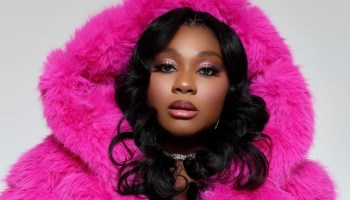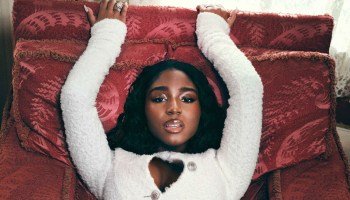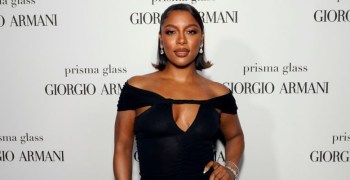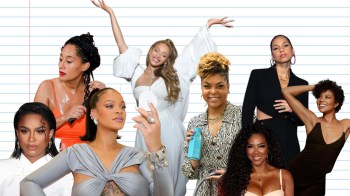Black women and hair loss is unfortunately a common pairing. This is largely due to the consistent reliance on weaves, wigs and braids. However, there are also many black women who suffer from forms of alopecia that don’t necessarily correlate to hair styling. On the latest episode of the Facebook talk show Red Table Talk, Jada Pinkett-Smith opened up about her frightening battle with unexpected hair loss.
There was a time back in the day when hair loss was associated more with natural aging than styling, but then the widespread popularity among black women and weaves and wigs became something of a cultural phenomenon—and hair loss, traction alopecia to be exact, started to become too common. Actress Jada Pinkett-Smith recently opened up about her struggles with alopecia on the most recent episode of her new talk show Red Table Talk, with her mother and her daughter.
During the discussion she speaks about just how fearful she was when she started to experience handfuls of her hair falling out while in the shower. She also revealed that her alopecia was the reason behind her edgy short haircut that she debuted on social media a few months ago. Pinkett-Smith has sought medical attention for her condition, but at press time she stated that the tests haven’t revealed the reason behind her hair loss, however she suspects stress may be the culprit.
Hello Beautiful reported on the increasing conditions of alopecia sufferers within the black community and whether you have alopecia as a result of your hairstyling choices, a medical condition or it’s hereditary, the shame often associated with it can be worse than the condition itself.
Many women become conditioned to continue to hide their hair loss because of embarrassment, especially if they suffer from traction alopecia, which is self-inflicted, in comparison to traditional alopecia. This shame accounts for a very profitable business of hair restoration products, including oils, creams, treatments and hair masks that promise to restore your hair to its crown and glory.
Sure, most traction alopecia cases can fortunately be reversed, but traditional alopecia sufferers are often not so lucky—and that can be a hard pill to swallow. In a world where women are often taught to equate their beauty with the length, texture, style and color of their hair, living with alopecia can be very difficult.
Jada Pinkett-Smith acknowledged this in her discussion, but she also recognized the positive in such a sensitive situation. She expressed that certain things happen as a result of a higher power and if the higher power chose for her to lose her hair, in the grand scheme of things it’s really a small price to pay when you consider the other serious issues she could be suffering from.
As a woman, specifically a black woman, your journey and relationship with your hair is your own and should never be compared or contrasted to someone else. Whether you suffer from any form of alopecia, use relaxers, wear it natural or love to rock weaves and wigs—whatever choices and decisions you make should come from you and no one else.
If all else fails, simply wrap your head up in a colorful scarf and be the beautiful queen you are.
Also check out THESE STORIES here:





















